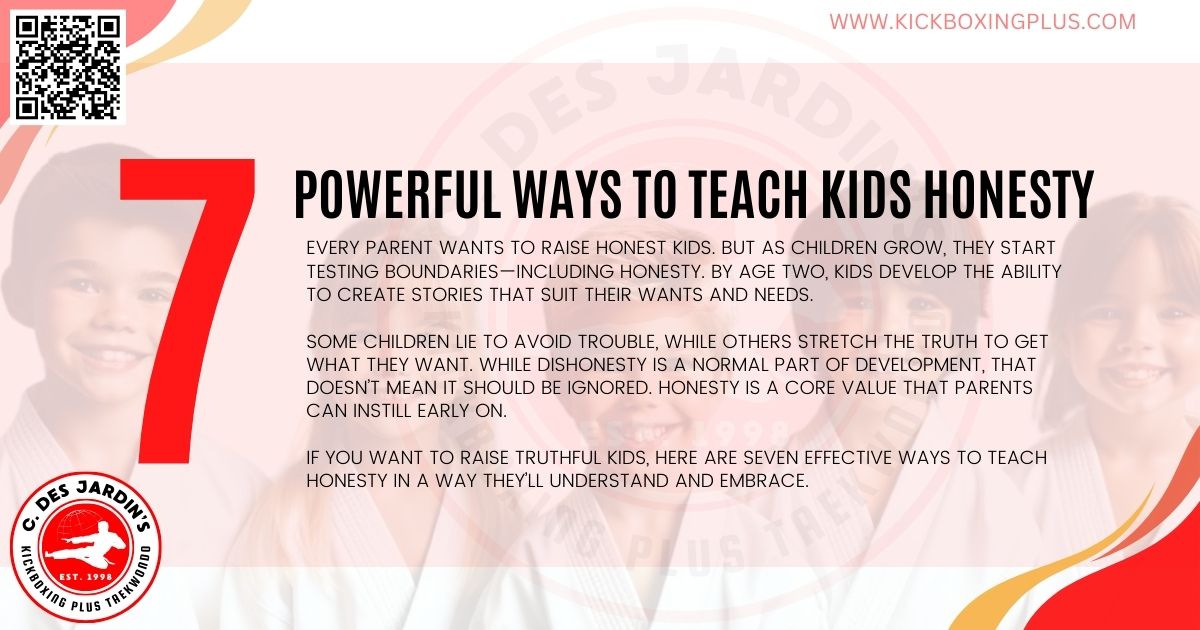
Every parent wants to raise honest kids. But as children grow, they start testing boundaries—including honesty. By age two, kids develop the ability to create stories that suit their wants and needs.
Some children lie to avoid trouble, while others stretch the truth to get what they want. While dishonesty is a normal part of development, that doesn’t mean it should be ignored. Honesty is a core value that parents can instill early on.
If you want to raise truthful kids, here are seven effective ways to teach honesty in a way they’ll understand and embrace.
1. Make Honesty a Family Value
Let your child know from a young age that honesty is important in your family. Use simple language to explain that lying breaks trust and that families need to believe one another. Reinforce that telling the truth—no matter what—is always the right choice.
2. Lead by Example
Children learn by watching their parents. If you want your child to be honest, be honest with them. Avoid small lies, even about difficult topics like illness or loss. Instead, offer age-appropriate truths. If a subject is too complex, let them know it’s something you’ll discuss when they’re older.
3. Don’t Set Them Up to Lie
Avoid asking questions when you already know the answer. If your child hasn’t cleaned their room, instead of asking, “Did you pick up your toys?” say, “I see the toys are still out. Let’s clean up together.” This removes the pressure to lie and teaches responsibility.
4. Never Call Them a Liar
Labeling a child as a “liar” can make them feel ashamed and defensive, leading to more dishonesty. Instead, separate the action from the child. Say, “I know that wasn’t the truth. Can you tell me what really happened?” This encourages them to be honest without fear of judgment.
5. Show That Honesty Makes You Happy
Kids naturally want to please their parents. Let them know how much you appreciate their honesty. A simple “Thank you for telling me the truth—I’m proud of you” reinforces that honesty is valued and builds their confidence in being truthful.
6. Stay Calm When They Lie
If your child lies, avoid reacting with anger or harsh punishment. Some kids lie out of fear of a big reaction. Instead, take a deep breath and calmly address the situation. Make sure they understand that honesty leads to trust, and that mistakes can be fixed without needing to lie.
7. Praise Truthfulness
Telling the truth takes courage—especially when a child fears consequences. When your child is honest, even in tough situations, acknowledge it. Saying, “That must have been hard to admit, but I appreciate your honesty” helps them feel good about making the right choice.
Final Thoughts
Honesty isn’t something kids learn overnight—it’s a value that grows with encouragement, patience, and consistent role modeling. By making truthfulness a priority in your home, you’re setting your child up for a lifetime of integrity and strong relationships.
Want more parenting tips? Follow us for more insights on raising confident and disciplined kids!
#OldBridgeNJ #OldBridgeKids #OldBridgeMartialArts #OldBridgeStrong #MatawanNJ #KickboxingPlus #TaekwondoForKids #KickboxingForKids #ConfidenceThroughMartialArts #KPTACommunity #OldBridgeFamilies #MartialArtsOldBridge #ParkPlazaOldBridge












